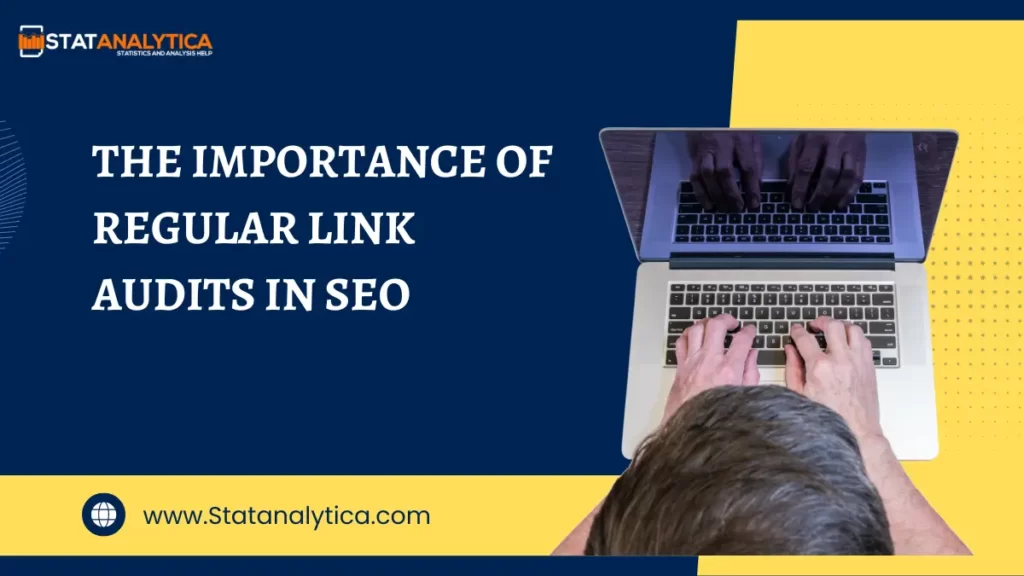In the dynamic landscape of digital marketing, search engine optimization (SEO) remains a vital component for online success. Among various SEO practices, one often overlooked but crucial aspect is conducting regular link audits. A link audit involves a comprehensive review of a website’s backlink profile – all incoming links from other websites. By identifying and removing low-quality or harmful links, these audits significantly enhance a site’s SEO performance.
Why Are Link Audits in SEO is Important?
Table of Contents
The importance of regular link audits in SEO cannot be overstated. They serve as a preventative measure, safeguarding your website’s health and its search engine rankings. Professional link builders regularly audit link profiles of the websites they work with, and here’s a deeper look at why you should do it too:
Safeguard Against Penalties
Google and other search engines have stringent guidelines against unnatural linking practices, such as purchasing links or using automated programs to create them. If your website violates these guidelines, you risk attracting penalties that could severely harm your site’s rankings. Regular link audits can help identify harmful links, and maintain a healthy backlinks profile allowing you to take corrective actions before receiving penalties.
Enhance Website Authority
High-quality, relevant backlinks increase your website’s authority, which plays a significant role in determining its search engine ranking. An audit helps identify these valuable links and strategize for acquiring more like them, thereby boosting your website’s reputation and visibility. It can also determine links from spammy or low-quality websites that could be harmful.
Identify Lost and Broken Links
Over time, some backlinks may become broken or lost due to changes in the linked websites, which can negatively impact your SEO efforts. Regular audits can quickly identify these issues through Backlink Monitoring, enabling you to address them promptly and maintain your site’s SEO health.
Track Your Link-Building Efforts
Regular link audits provide invaluable insights into your link-building strategies’ effectiveness. They help you understand which tactics are working, which ones need improvement, and how your backlink profile has grown over time.
Steps in Conducting a Link Audits in SEO
Conducting a link audit is a meticulous process involving several steps:
- Gathering Backlink Data: The first step is to gather data about all backlinks to your website. SEO Tools like Google Search Console, SEMrush, or Ahrefs can be invaluable for this purpose.
- Analyzing Backlink Quality: Once the data is gathered, it’s time to assess the quality of each backlink. Key factors to consider include the linking site’s authority, its relevance to your niche, the anchor text used, and the nature of the link (dofollow or nofollow).
- Identifying Harmful Links: This step involves identifying potentially harmful links. Signs of such links can include a sudden influx of backlinks from low-quality or irrelevant sites, over-optimized anchor text, or links from penalized websites.
- Removing or Disavowing Bad Links: Upon identifying harmful links, you should attempt to remove them. This often involves contacting the site owners and requesting link removal. If this proves unsuccessful, you can use Google’s Disavow Links tool to ask Google not to consider these links when assessing your site.
If these steps seem too difficult for you, don’t worry; there are special tools that you can use to automate the processes. Moreover, you can hire a professional agency to perform a link audit for you and get their recommendations for further actions.
Tools for Performing Link Audits in SEO
Several tools can facilitate the process of conducting a link audit. Here are some popular options:
- Google Search Console: This free tool from Google provides a comprehensive list of your site’s backlinks. It also alerts you to any manual actions taken by Google against your site due to harmful links.
- SEMrush: SEMrush is a paid tool offering detailed backlink analysis. It allows you to check the authority of the linking sites, the anchor text used, and whether the link is dofollow or nofollow.
- Ahrefs: Ahrefs is another paid tool providing extensive backlink data. Its unique “Link Intersect” feature helps identify sites linking to your competitors but not to you, offering potential opportunities for new high-quality links.
- Moz Link Explorer: This tool not only provides a list of your backlinks but also gives each link a “spam score”. This score can help identify potentially harmful links that need reviewing.
Conclusion: Link Audits in SEO
In conclusion, regular link audits are an integral part of a robust SEO strategy. They protect your website from penalties, enhance its authority, provide actionable insights, and help optimize your link-building efforts.
With the right tools and strategies, these audits can significantly improve your website’s SEO performance and contribute to your overall digital marketing success. So, embrace the practice of regular audits and let your website reap the SEO benefits that come with it.
Also Read: Top 37+ Exciting Website Project Ideas to Ignite Creativity


